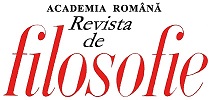Spectrele romantismului. Marcuse și moștenirea lui Schiller
The Specters of Romanticism: Marcuse and the legacy of Schiller
Author(s): Ionuț VăduvaSubject(s): Aesthetics, Sociology of Culture, Sociology of Politics
Published by: Editura Academiei Române
Keywords: aesthetic emancipation; play drive; alienated labor; Schiller; republicanism; Marcuse; utopia;
Summary/Abstract: The aim of this paper is twofold: first, to underline the republican nature of Schiller’s Letters on the Aesthetic Education of Man, their emancipative aspect, and second, the ways in which Marcuse appropriated and used Schiller’s perspective. I will thus stress the conceptual unity between Schiller’s and Marcuse’s views on emancipation and how the latter has re-signified the Schillerian categories to justify his revolutionary project. Schiller aims at conciliating the historical conflict between the formal and sensuous drive by instrumentalizing a third one, the play drive. He highlights the pedagogical and historical role of art and an artist-educator, as a privileged form of subjectivity. In Marcuse, we find a revisited perspective on utopia, which deals with realizing the revolutionary potential of the capitalist society, actively prevented from actualizing by the existing social structures. Even though Marcuse’s main theoretical tools are derived from Freud, the Schillerian play drive is central to his project; fundamentally, for him, an ideal form of society would abolish alienated labor and transform it into play, which would consist of a multifaceted and non-discriminatory expression of human faculties.
Journal: Revista de filosofie
- Issue Year: LXX/2023
- Issue No: 4
- Page Range: 399-420
- Page Count: 22
- Language: Romanian

